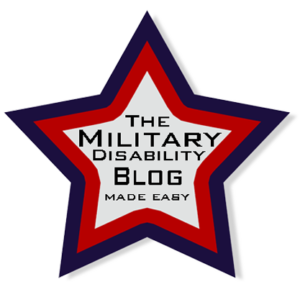What is the meaning of DBQ?
- Published:
- Last Updated: August 1, 2024
For VA disability claims, it’s critical to understand the meaning of DBQ because important medical data can be gathered using a DBQ to ensure that a veteran’s disability claim is evaluated properly.
What exactly is the meaning of DBQ?

The meaning of DBQ is Disability Benefits Questionnaire. There are over 60 different DBQs, each geared toward different medical conditions or parts of the body, like PTSD or respiratory conditions.
A DBQ is a standardized form issued by the Department of Veteran Affairs (VA) and it is intended to be completed by the veteran’s medical provider who diagnosed the condition and/or treated it the longest (i.e. most familiar with it).
The purpose of a DBQ is to gather important medical information that is needed in assessing a veteran’s disability claim. This information complements the medical evidence the VA gathers at their C&P Exams and provides further testimony regarding the cause of the condition, its development over time, and its current severity.
Why is it important to know the meaning of DBQ?
Understanding the meaning of DBQ is essential when applying for veteran’s disability benefits.
It is ultimately the veteran’s responsibility to ensure that the VA has all of the evidence they need to correctly determine a claim, so if you do not know what a DBQ is, how it works, and if you need one, you could miss out on submitting vital evidence necessary for your claim.
While a Disability Benefits Questionnaire (DBQ) is not required, it can be very helpful in submitting a successful claim. If your medical records are missing key information necessary to prove service-connection or properly rate your condition, then a DBQ can fill in these gaps with this essential data.
Each DBQ contains pre-determined criteria and set questions that allow the VA to evaluate the condition’s impact on your ability to work and function in daily life.
In reality, most DBQs gather far more information than is needed to evaluate a condition, but it is always better to provide the VA with too much information than not enough.
What are the key components of a DBQ?
The meaning of DBQ is Disability Benefits Questionnaire, so let’s discuss the key components of this questionnaire. Remember that there are over 60 DBQs, so some components may differ slightly from one to the next.
Key Components:
- Identifying Information: Every DBQ starts by gathering identifying information for both the veteran and the medical provider completing the form.
- Evidence Reviewed: To ensure that the physician completing the DBQ has a clear picture of the condition, the VA needs to know what historic evidence of the condition the physician has reviewed. If no records were reviewed by the physician, their full knowledge of the history of the condition will be doubtful.
- Diagnosis: In order for a condition to be rated by the VA, the diagnosis must be clear.
- Medical History: Every DBQ is designed to address a distinct health problem or group of illnesses. In the medical history section, the physician is asked a series of particular questions related to the history of the condition, including things like surgical procedures, symptoms, related diagnoses, etc.
- Physical Exam: After the medical history, the physician is required to perform a thorough physical examination and answer multiple questions in detail. The purpose of the questions is to fully record the present symptoms of the condition, all current treatments, and how the condition affects the veteran’s daily life.
- Diagnostic Testing: Some conditions require certain tests to be performed in order to correctly diagnose the condition. This section of the DBQ ensures that these tests are completed.
- Functional Impact: In this section, the physician needs to record how the condition affects the veteran’s ability to work and function in daily life.
- Remarks: At the end of each DBQ is an area for the physician to make any further remarks regarding the condition. This is a great place for them to sum-up their theories on service-connection and any other information they feel is necessary.
- Examiner’s Certification and Signature: The final component of every DBQ requires the examiner to provide evidence of their qualifications, contact information, and a signature attesting to the validity of their answers in the questionnaire.
The meaning of DBQ is now clear, but what else should you know?
Originally, DBQs were only supposed to be used by VA physicians when performing C&P Exams. However, there were no rules against civilian physicians completing them, and so more and more did so at veterans’ requests until the VA pulled them from public access.
Once the public couldn’t use the DBQs, there was a bit of an up cry, and so the VA released new Public DBQs in 2021. These Public DBQs are specifically intended to be completed by the most qualified physician, whether civilian or VA-affiliated, who knows the condition the best.
The best physician to complete your DBQ is the one who
- Diagnosed the condition and can speak to the cause of it
- Is a specialist (i.e. neurosurgeon instead of a general practitioner)
- Knows the history and development of the condition
- Has treated the condition over time and knows how it has developed
- Is familiar with the current severity of the condition
When a DBQ is completed by the most qualified physician, the VA will give it a high probative value. Evidence with a high probative value is more likely to be true and correct than evidence with a low probative value.
For example, evidence that comes from a neurosurgeon (the top specialist in the field) will have a higher probative value than evidence that comes from a general practitioner. Similarly, evidence that comes from a physician that has treated the condition for years will have a higher probative value than evidence from a physician who has only evaluated the condition one time.
You now understand the meaning of DBQ, but do you need one?
Now that you understand the meaning of DBQ and how it is used to support a VA Disability Claim, it is time to determine whether or not you need one.
In order for the VA to grant disability benefits for a medical condition, the veteran must prove that the condition is service-connected. Once service-connection is established, the VA will then use the medical evidence submitted with the claim to determine the rating for the condition. In turn, the rating is used to determine the amount of monthly compensation the veteran will receive.
Since it is your job, as the veteran, to ensure that your claim contains sufficient evidence to prove service-connection and to rate the condition, you need to carefully gather and organize your evidence.
If your evidence clearly proves service-connection and includes everything necessary to properly rate your condition, then a DBQ is probably not needed.
However, if the evidence is not sufficient to establish service-connection and/or support the correct rating, then you should consider having your physician complete a DBQ to strengthen your claim.
Recent Posts
TDRL vs. PDRL—Which is better for disability benefits?
Leukemias and Multiple Myelomas NOW on the Presumptive List
Two MORE Conditions added to the Burn Pit Presumptive List
The 2025 VA Disability Rates are here!
About Us









